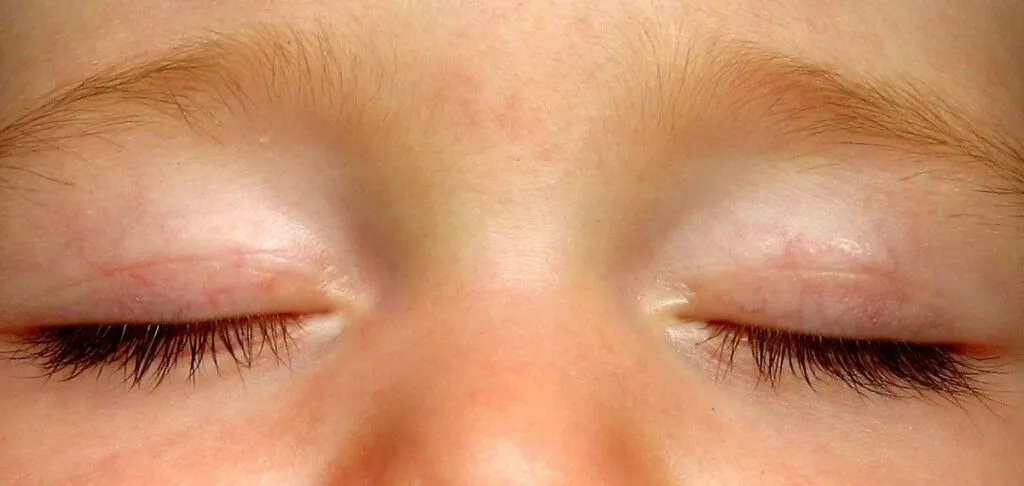

Sleep is not just a period of rest, it is an important part of our health and well-being.
Sleep efficiency, defined as the ratio of time spent asleep to total time spent in bed, is a key indicator of rest quality.
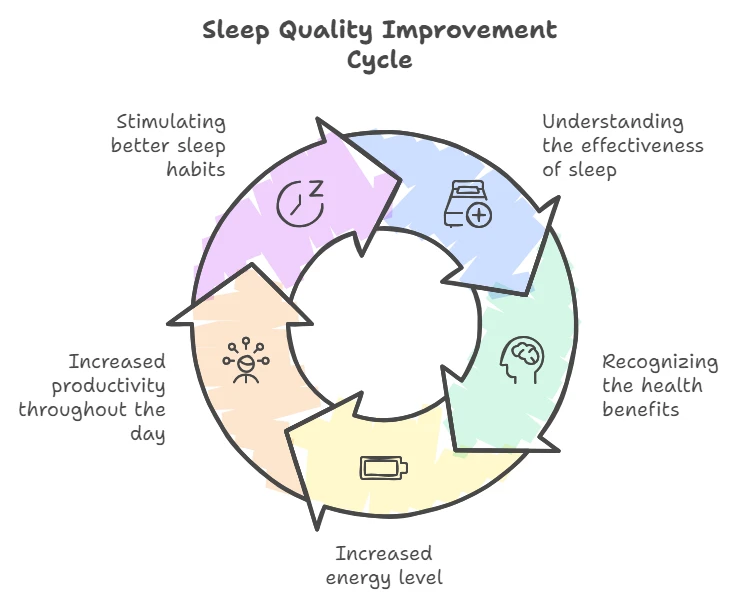
Studies show that high sleep efficiency promotes better physical and mental health, and increases energy levels and performance throughout the day.

In this article, we will review factors that affect sleep efficiency, current research in the field, and offer recommendations for improving your sleep quality.
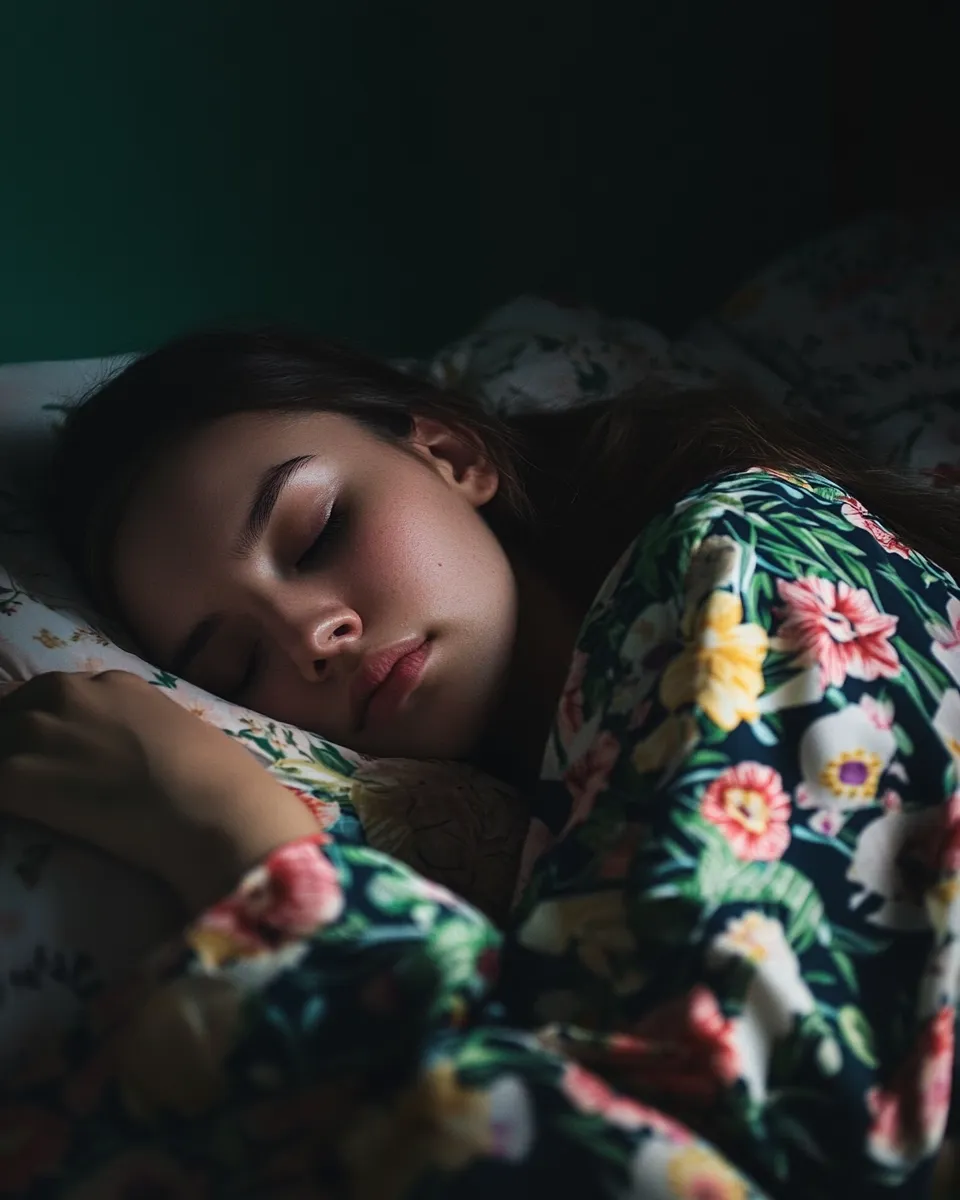
What is sleep efficiency?
Sleep efficiency reflects how effectively you utilize the time you spend in bed.
The optimal value of this indicator should be above 85%. Below is the definition and key parameters affecting sleep efficiency.
| Parameter | Description |
|---|---|
| Bedtime | Total time spent in bed, including time falling asleep and waking up |
| Sleep time | Actual time spent asleep |
| Sleep efficiency | (Time asleep / Time in bed) × 100% |

Current research
Recent studies show that sleep efficiency can vary greatly depending on various factors such as age, stress levels, and lifestyle. For example:
- A 2022 study at the University of California found that people who use electronic devices before bed have significantly lower sleep efficiency compared to those who avoid screen time.
- A 2023 study in the journal Sleep Medicine found a link between physical activity and increased sleep efficiency. Participants who engaged in regular physical activity showed better sleep performance compared to those with sedentary lifestyles.
| Research | Year | Key findings |
|---|---|---|
| University of California | 2022 | The effect of screen time on sleep efficiency |
| Sleep Medicine Magazine | 2023 | The relationship between physical activity and sleep quality |
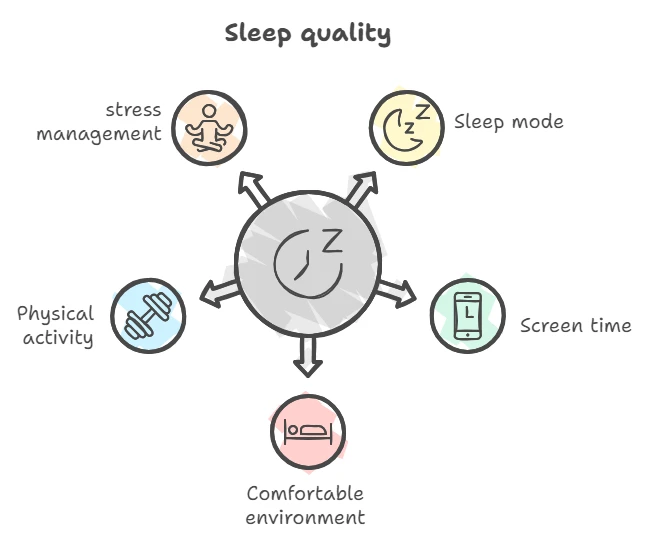
Recommendations for improving sleep efficiency
- Sleep regularity: Try to go to bed and get up at the same time every day, even on weekends. This will help establish internal biorhythms.
- Minimize screen time: Avoid using phones, tablets and TVs 1-2 hours before bedtime. The blue light emitted from screens suppresses the production of melatonin, a hormone that regulates sleep.
- Create a comfortable environment: Make sure your bedroom is dark, quiet and cool. Consider using a sleep mask or earplugs.
- Physical activity: Regular exercise can significantly improve sleep quality. However, try not to exercise right before bedtime.
- Avoiding stress: Relaxation practices such as meditation or breathing exercises can help reduce stress levels and improve sleep quality.

Let’s summarize
Effective sleep plays a key role in our physical and mental health.
Lack of quality rest can lead to depression, anxiety and a weakened immune system.
To improve sleep quality, it is important to establish a regular sleep schedule, create a comfortable sleeping environment and practice relaxation techniques such as meditation or breathing exercises.
If sleep problems persist, see a specialist.
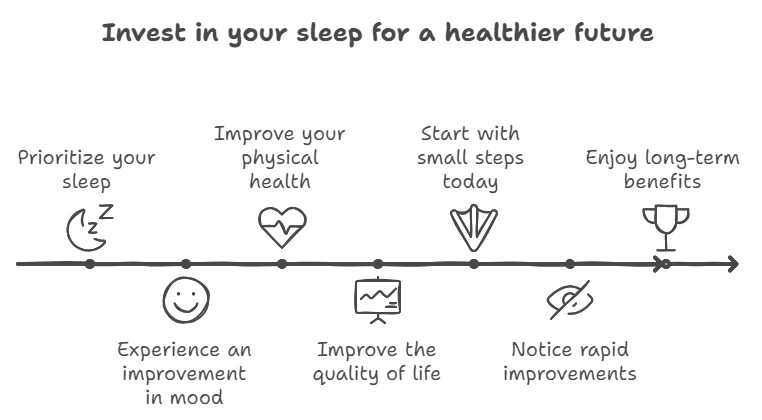
By taking care of your sleep today, you are investing in your future health and well-being.


